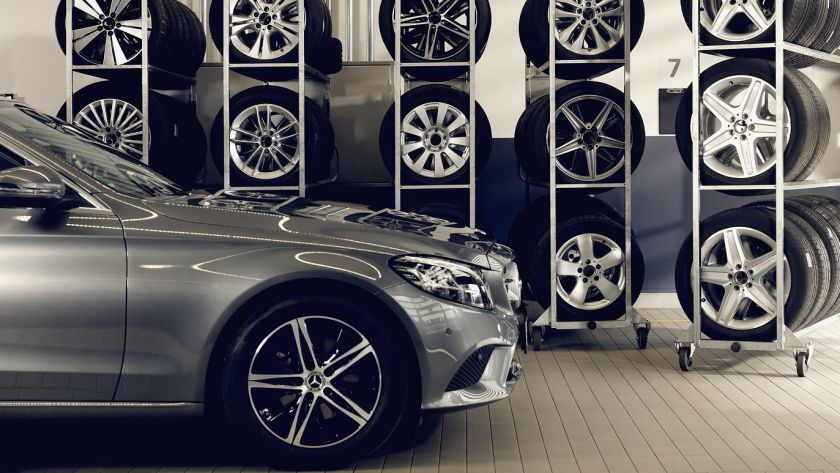
The brief answer to the first part of question.
If the temperatures are dropping below +7 degrees Celsius, it’s time to switch to winter tires, because the material of the summer tires loses elasticity. Therefore, now is the perfect time to select and replace winter tires. If you are late with replacing tires, it may turn out that you must "take what is left" and wait in a line for a replacement.
An answer to the second part of question is more detailed.
The rain, black ice and snow are the weather conditions that await us soon and thereby endanger our driving. Winter tires should be chosen with a caution - especially when it comes to safety. A caution can never be too much.
A special rubber compound is used in the production of winter tires, which maintains flexibility even at low temperatures. The protector pattern is also important, as it determines how effectively the tire drains out water, mud, and snow. Both factors determine the grip of the tires on the road surface, which affects the braking distance and the vehicle's trajectory when cornering or during fast maneuvers. It should also be noted that good tires are essential in “special situations”, when braking distance is reduced by 15%.
In addition, the car rims also play a role in winter conditions, which are designed to prevent snow and ice freezing in them. It means that there is no imbalance in the wheels of the car. Finally, the choice of tires and rims also have an impact on fuel consumption and external noise level (comfort).
Then what should you choose?
Since 2012, all tires sold in Latvia must have EU markings that indicate: fuel efficienty, wet grip and exterior noise level. Therefore, the ratio of price, quality and performance can be considered as the main guiding principle in the choice of tires.
Based on a series of tests, checks and an individual approach, considering also the specification of each Mercedes-Benz model, we recommend that you take the recommendations of the car manufacturer. By evaluating countless combinations of tires and rims, the most suitable variant for each Mercedes-Benz model was found. They are manufactured in factories of the world's best brands (eg Pirelli, Continental, Michelin, Dunlop, etc.) and have improved material compound and tread design. According with the Mercedes-Benz premium requirements there is a mark on the sidewall of the tire - "MO" - Mercedes-Original, or "MOE" - Mercedes Original Extended.
But for those who want the best or nothing, we offer the Mercedes-Benz complete wheels set. The set includes a tire and a rim with integrated pressure sensor (TPMS) factory-fitted in Germany. TPMS guarantees the highest accuracy. Complete wheels set is the best balance between design, quality, and comfort, it also matches to the chassis of your Mercedes-Benz car and matches to the smallest details of the safety system. Additionally, you gain the greatest economy.
For example, Mercedes-Benz GLE V167 model. When you are buying a tire, disc and pressure sensor separately, you have to pay 1091 Eur for each unit. But the price for each unit included in complete wheels set * (tire, rim, pressure sensor) will be 756 Eur per unit. So, your benefit is 1340 Eur.
Summing up, we can say that the tires and complete wheels recommended by the manufacturer will serve you longer and more reliably. Your car will acquire the best performance in handling, rolling resistance, tire durability, fuel consumption, external noise level (comfort), traction and reliability.
Choose tires for your Mercedes-Benz with us and book a replacement and storage on time!
Get a consultation by phone* Tire 275 / 50R20 113R XL Nokian Hakkapeliitta R3 SUV BEB73dB






